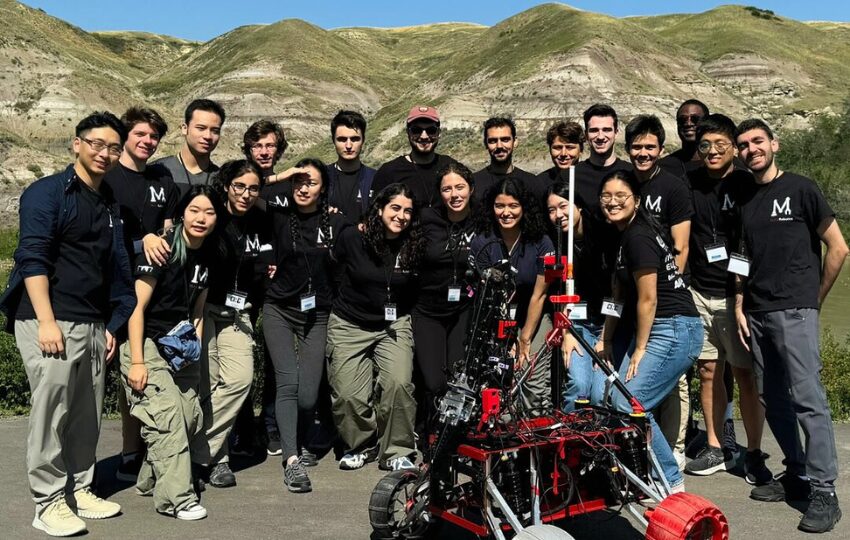
When you think of students flying drones, building underwater vehicles or attending hackathons, sustainability may not be the first thing that comes to mind.
But what if the drone were surveying a nature reserve, the underwater vehicle were made with modular materials and the hackathons were tied to the UN’s Sustainable Development Goals?
Those are just some of the initiatives being championed by McGill Robotics, an award-winning student design team that develops innovative technology while promoting a culture of sustainability.
“We wanted to expand our reach beyond just competing in challenges,” said Adrien Moulin, a computer science student who serves as the Robotics team’s captain and business director. “Implementing sustainability is a way to be part of something bigger.”
Over the last two years, McGill Robotics has challenged its members to retool their robots, reinvent their events and reflect on the role sustainability can play in their work.
“We’ve established that sustainability can be implemented into your design process, or in any process,” said Léanne Ricard, a software engineering student and RoboHacks Project Manager. “Robots can do a lot of great things, so why not put them to good use?”
A sustainable transition
McGill Robotics comprises over 200 members who maintain an autonomous underwater vehicle (AUV), a Mars rover and a drone. They regularly compete in the Canadian International Rover Challenge and the Student Unmanned Aerial Systems Competition. Alumni have gone on to work for top tech companies.
Their sustainability transition began in 2023, when they received over $60,000 in funding from McGill’s Sustainability Projects Fund, the largest fund of its kind in Canada. They created a new VP Sustainability position and immediately got to work transforming their robots.
“Our drone and AUV were completely redesigned with stronger, sturdier components,” said Moulin. “The design is a lot more modular, so we can use it for different situations.”
Their drone now consumes less energy and features more swappable parts, and there are plans to use it to survey the white-tailed deer population at McGill’s Gault Nature Reserve.
“Our drone is bigger, able to fly longer, and do the mission more quickly,” said Emma Sinasac, a mechanical engineering student and Robotics Drone Project Manager. “It’s a great way for us to be more sustainable and allows us to keep using the drone outside of competition.”

Hack the planet
Robotics’s sustainability transition also inspired RoboHacks, the team’s annual hackathon.
RoboHacks is now in its third year. All events have incorporated a sustainability theme, obtained McGill’s sustainable event certification and featured speakers on sustainability topics.
This year’s theme was deforestation, and the event featured Julie Major, Senior Faculty Lecturer in the Faculty of Agricultural and Environmental Sciences and Director of the McGill Panama Field Study Semester, discussing agricultural research in Panama. Sustainability was a major factor in the competition’s judging criteria, encouraging teams not only to use reuseable and recyclable materials, but as little material as possible.
“A couple of projects pushed that idea really far, which was interesting to see,” said Ricard. “If you consider the parts you’re using and how you can repurpose or reuse them, you’ve already made a major impact on the sustainability of a product.”
A post-event survey revealed over 80 per cent of respondents learned about sustainability and how to implement it during the hackathon, “reinforcing the fact that it’s an educational event with long-lasting impact,” said Ricard.
Future innovation
Robotics’s sustainably transition hasn’t been without its challenges. The team’s competition results took a hit when they initiated the redesign, and they’re currently searching for a sustainable project that can make use of their rover.
Yet there have been successes as well, such as earning a Tenacity Award at a competition this past summer.
The team’s sustainability transition remains a work in progress, but its members remain committed to testing new ideas, exploring new technology and educating their peers.
“We’re definitely on the lookout for more projects and partnerships, and I don’t think our sustainable transition will ever be completely done,” said Moulin. “If this is something that matters to you, there’s definitely a place in Robotics for you to implement it and help us make that change.”
